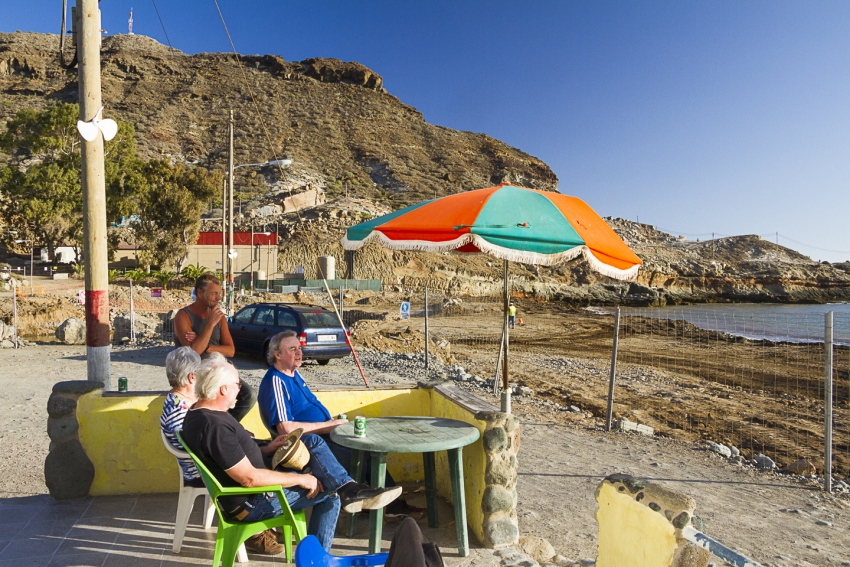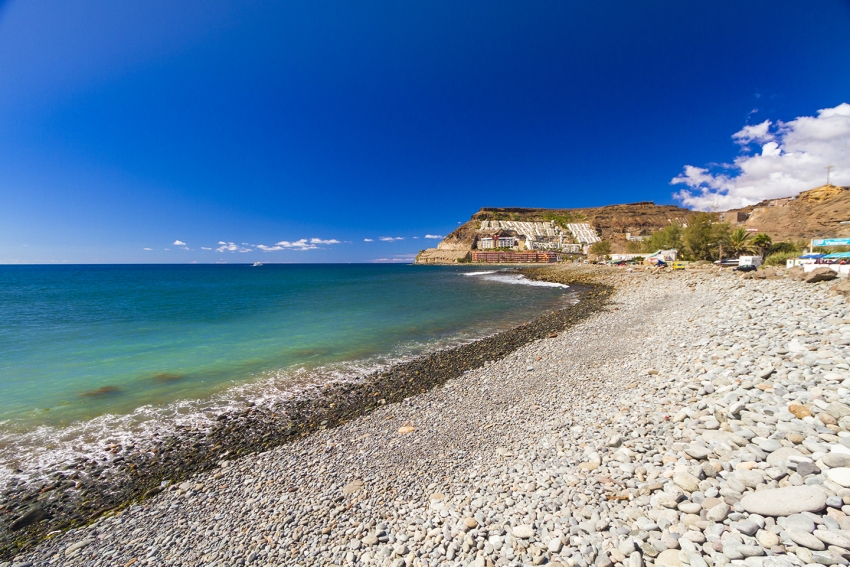What On Earth Is Going On At Tauro Beach
New Tauro Beach To Be Finished In 2015
After 20 years of delays, the Tauro artificial beach project is on; Grupo Anfi now has final approval from Spain's Costas department to make the beach and a 50-year concession to exploit it commercially. It expects to spend 6 million euros on the project and to be finished by the end of 2015.
The new Tauro beach (which Grupo Anfi are imaginatively trying to brand as Anfi Tauro) will be twice the size of the existing pebble beach at 300 metres long and 50 metres wide. It's expected to be made from white sand imported from the Caribbean (like Anfi beach) rather than the coarser sand at Amadores beach (which was dredged from off Pasito Blanco). The initial project also seems to include a seafront promenade linking Tauro beach to Amadores.
Local footballer David Silva (a former sponsor of Anfi and investor in the Amadores Beach Club) has already christened the new beach by adding the first spadeful of sand at a press conference at Tauro beach this morning.
Anfi also plans to build a 400 berth marina at Tauro beach, along with 7,500 hotel beds and an 18.500 square metre recreational area (shops).
Gran Canaria Info recommends:
- Default
- Title
- Date
- Random
Join the Gran Canaria Info newsletter list
Gran Canaria info recommends
-

Off The Beaten Track With A Gran Canaria Buggy Trip
-

The Best Value Car Rental Service In Gran Canaria
-

Gran Canaria Shopping: Start At Fundgrube For Price & Quality
-

Hassle-Free Gran Canaria Car Hire
-

Which Gran Canaria Airport Transfer Service Is The Best?
-

Casa Romantica: A Classic Gran Canaria Restaurant Reborn
- 1
Follow us on Facebook
Tip of the day
-
Exchange Money In Gran Canaria Or At Home?

Visitors to Gran Canaria often ask whether it is better to exchange their local currency for euros at home or in Gran Canaria.
The answer is that it is almost always better to buy your euros at home than it is to bring pounds to Gran Canaria and use local banks or currency exchanges. This rule of thumb applies all over the world. A currency is almost always cheaper the further away you are from the place you can spend it (because demand for it is lower).
Exchange rates are almost always better at home than in Gran Canaria
You are very likely to get a better exchange rate using a British currency exchange specialist or local bank. Many of these companies will deliver your euros to your home.
One of the best rates in the UK is often from the post office, especially if you do it well in advance.
The only way you'll get a better rate in Gran Canaria than at home is if the exchange rate changes while you are travelling and this is rare.
You also have to bear in mind that currency exchanges in Gran Canaria are getting rarer and some local banks don't exchange money for non-clients.
To Transfer large amouynts of money to Gran Canaria, or to make regular transfers, always use a reputable currency broker such as Currencies Direct. This will save you money on exchange rates and bank charges and is highky secure.
The risk of bringing cash to Gran Canaria
Another important factor to consider is the risk of bringing cash to Gran Canaria: If it is lost or stolen, there is no way of getting it back.
It is much safer to bring a debit or credit card and use local bank ATMs to take out money. These days, a good option is a pre-charged debit card.
Cards may be slightly more expensive that carrying cash, unless you seek out a bank card with low commissions, but it is much more secure.
Bank ATMs like Bankia, Santander and BBVA often charge lower rates than the ATMs in shopping centres and busy tourist areas.
Alex Says: Always select the Euro option at ATMs in Gran Canaria because the exchange rate is much better than if you opt for the Local Currency option. The same applies when you pay by card in shops and restaurants.
See our Gran Canaria Tips section for more nuggets of useful local information.
Latest articles
Who's Online
We have 6285 guests and no members online







